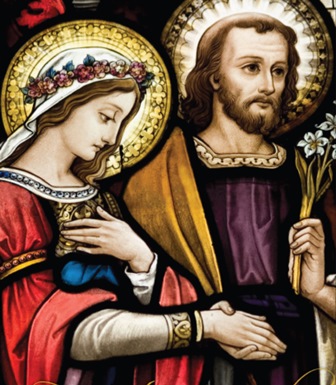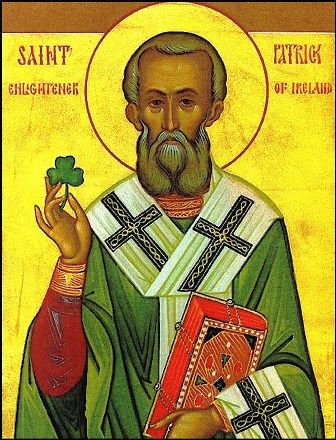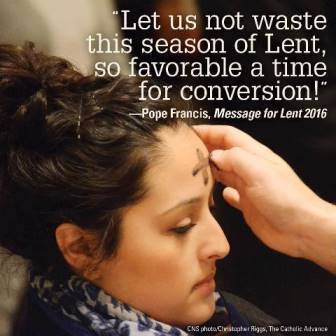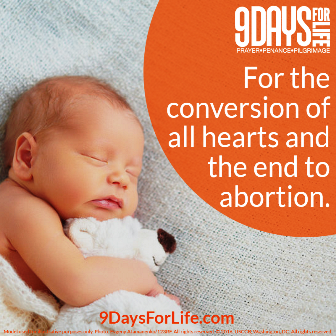Blog & News
Handmaid of the Lord
 26 And in the sixth month, the angel Gabriel was sent by God to a town in Galilee called Nazareth, 27 to a virgin engaged to a man whose name was Joseph, of the house of David. The virgin’s name was Mary. 28 And he came to her and said, “Hail, full of grace! The Lord is with thee: blessed art thou among women.”
26 And in the sixth month, the angel Gabriel was sent by God to a town in Galilee called Nazareth, 27 to a virgin engaged to a man whose name was Joseph, of the house of David. The virgin’s name was Mary. 28 And he came to her and said, “Hail, full of grace! The Lord is with thee: blessed art thou among women.”
Joseph the Husband
 18 Now the birth of Jesus the Messiah took place in this way. When his mother Mary had been engaged to Joseph, but before they lived together, she was found to be with child from the Holy Spirit. 19 Her husband Joseph, being a righteous man and unwilling to expose her to public disgrace, planned to dismiss her quietly. 20 But just when he had resolved to do this, an angel of the Lord appeared to him in a dream and said:
18 Now the birth of Jesus the Messiah took place in this way. When his mother Mary had been engaged to Joseph, but before they lived together, she was found to be with child from the Holy Spirit. 19 Her husband Joseph, being a righteous man and unwilling to expose her to public disgrace, planned to dismiss her quietly. 20 But just when he had resolved to do this, an angel of the Lord appeared to him in a dream and said:
Patrick: Slave & Saint
 Legends about Patrick abound; but truth is best served by our seeing two solid qualities in him: he was humble and he was courageous. The determination to accept suffering and success with equal indifference guided the life of God’s instrument for winning most of Ireland for Christ. Details of his life are uncertain. Current research places his dates of birth and death a little later than earlier accounts. Patrick may have been born in Dunbarton, Scotland; Cumberland, England; or in northern Wales.
Legends about Patrick abound; but truth is best served by our seeing two solid qualities in him: he was humble and he was courageous. The determination to accept suffering and success with equal indifference guided the life of God’s instrument for winning most of Ireland for Christ. Details of his life are uncertain. Current research places his dates of birth and death a little later than earlier accounts. Patrick may have been born in Dunbarton, Scotland; Cumberland, England; or in northern Wales.
Month of Joseph

How can a Christian man today best serve his family? March is traditionally remembered as the Month of Saint Joseph, and on March 19 we observe the Solemnity of Saint Joseph, Spouse of the Blessed Virgin Mary. Saint Joseph, chosen by God to be the Head of the Holy Family, is the perfect example of how a husband can best serve his wife and children.
Lent: More than Ashes on the Forehead
"Resolve to live more c onsistently in ways pleasing to God this Lent." That simple advice comes from Father Philip Sosa, provincial superior of the Missionaries of the Holy Family, based in Saint Louis at Saint Wenceslaus Parish. "As we begin our Lenten Journey, let us commit to doing more than wearing ashes on our foreheads. Let us resolve to live more consistently in ways pleasing to God, and may He give you whatever you need to testify to His love," Father Sosa wrote before the beginning of Lent.
onsistently in ways pleasing to God this Lent." That simple advice comes from Father Philip Sosa, provincial superior of the Missionaries of the Holy Family, based in Saint Louis at Saint Wenceslaus Parish. "As we begin our Lenten Journey, let us commit to doing more than wearing ashes on our foreheads. Let us resolve to live more consistently in ways pleasing to God, and may He give you whatever you need to testify to His love," Father Sosa wrote before the beginning of Lent.
Saving Souls
 1 Come now, you rich people, weep and wail for the miseries that are coming to you. 2 Your riches have rotted, and your clothes are moth-eaten. 3 Your gold and silver have rusted, and their rust will be evidence against you, and it will eat your flesh like fire. You have laid up treasure for the last days. 4 Listen!
1 Come now, you rich people, weep and wail for the miseries that are coming to you. 2 Your riches have rotted, and your clothes are moth-eaten. 3 Your gold and silver have rusted, and their rust will be evidence against you, and it will eat your flesh like fire. You have laid up treasure for the last days. 4 Listen!
The Turkey Hunter

March for Life 2017
 Join us Friday, January 27, for the March! The March for Life vision is a world where every human life is valued and protected. Our mission is to provide all Americans with a place to testify to the beauty of life and the dignity of each human person. Every January, on the anniversary of legalized abortion in the United States, and throughout the year, we bring together pro-life leaders and groups to unite around a common message. We communicate this message to the government, the media, and the nation in a way that is powerful and life affirming.
Join us Friday, January 27, for the March! The March for Life vision is a world where every human life is valued and protected. Our mission is to provide all Americans with a place to testify to the beauty of life and the dignity of each human person. Every January, on the anniversary of legalized abortion in the United States, and throughout the year, we bring together pro-life leaders and groups to unite around a common message. We communicate this message to the government, the media, and the nation in a way that is powerful and life affirming.
Greatest in the Kingdom
 1 At that time the disciples came to Jesus, saying, “Who is the greatest in the kingdom of heaven?” 2 And calling to him a child, he put him in the midst of them, 3 and said, “Truly, I say to you, unless you turn and become like children, you will never enter the kingdom of heaven. 4 Whoever humbles himself like this child, he is the greatest in the kingdom of heaven."
1 At that time the disciples came to Jesus, saying, “Who is the greatest in the kingdom of heaven?” 2 And calling to him a child, he put him in the midst of them, 3 and said, “Truly, I say to you, unless you turn and become like children, you will never enter the kingdom of heaven. 4 Whoever humbles himself like this child, he is the greatest in the kingdom of heaven."
Lamb of God
 19 And this is the testimony of John, when the Jews sent priests and Levites from Jerusalem to ask him, “Who are you?” 20 He confessed, he did not deny, but confessed, “I am not the Christ.” 21 And they asked him, “What then? Are you Elijah?” He said, “I am not.” “Are you the prophet?” And he answered, “No.” 22 They said to him then, “Who are you? Let us have an answer for those who sent us. What do you say about yourself?” 23 He said, “I am the voice of one crying in the wilderness, ‘Make straight the way of the Lord,’ as the prophet Isaiah said.”
19 And this is the testimony of John, when the Jews sent priests and Levites from Jerusalem to ask him, “Who are you?” 20 He confessed, he did not deny, but confessed, “I am not the Christ.” 21 And they asked him, “What then? Are you Elijah?” He said, “I am not.” “Are you the prophet?” And he answered, “No.” 22 They said to him then, “Who are you? Let us have an answer for those who sent us. What do you say about yourself?” 23 He said, “I am the voice of one crying in the wilderness, ‘Make straight the way of the Lord,’ as the prophet Isaiah said.”




